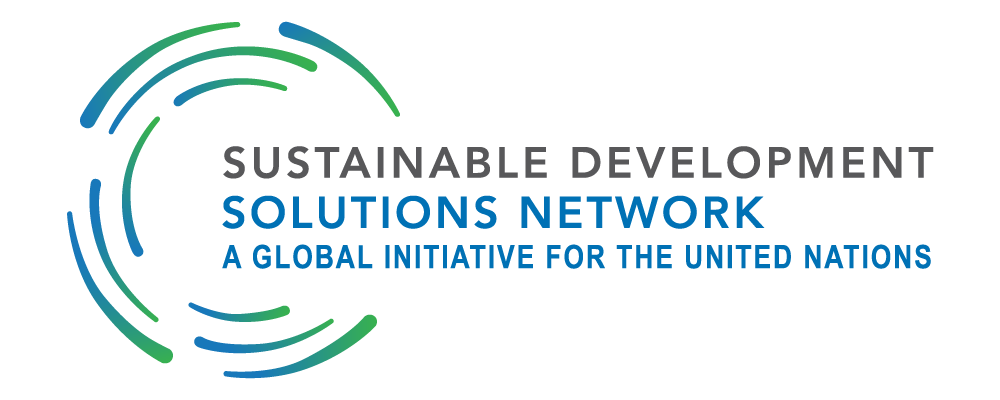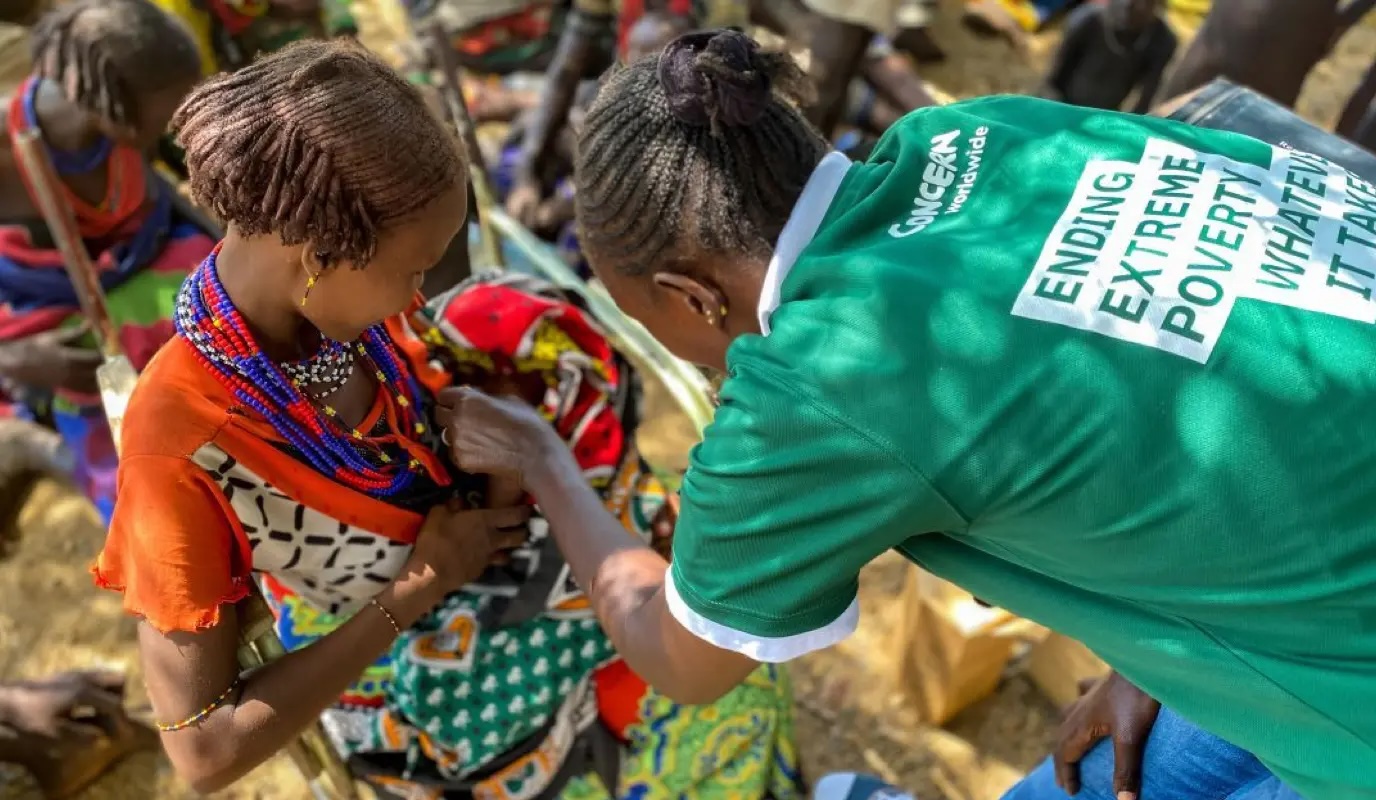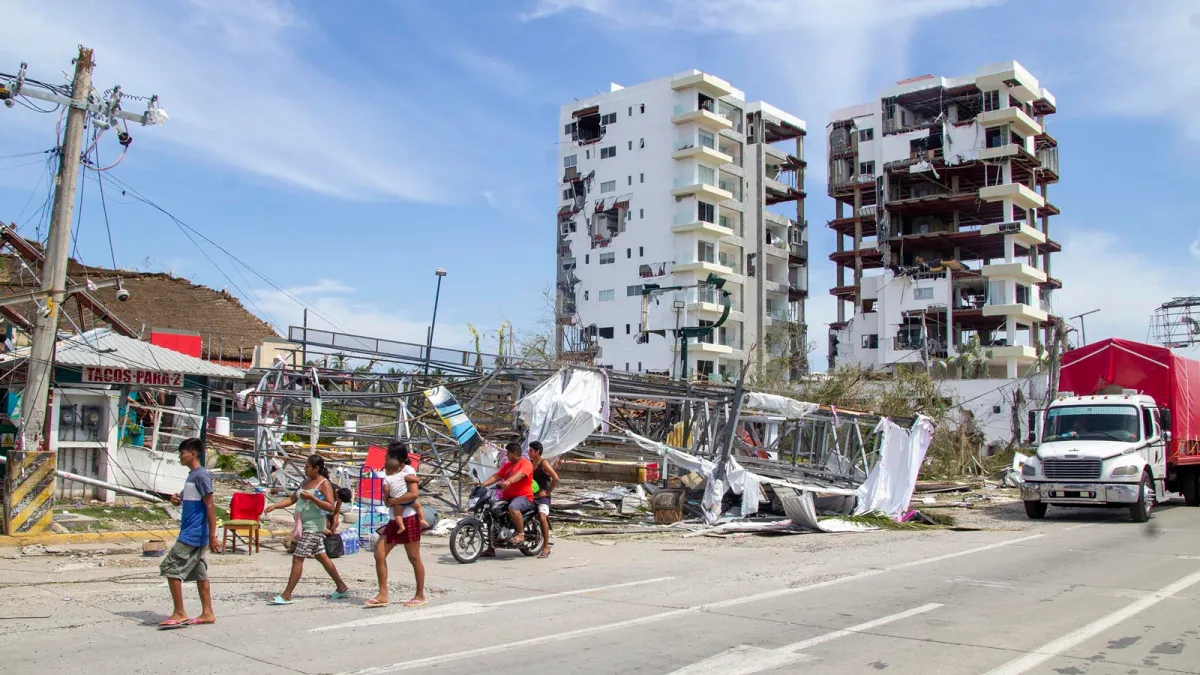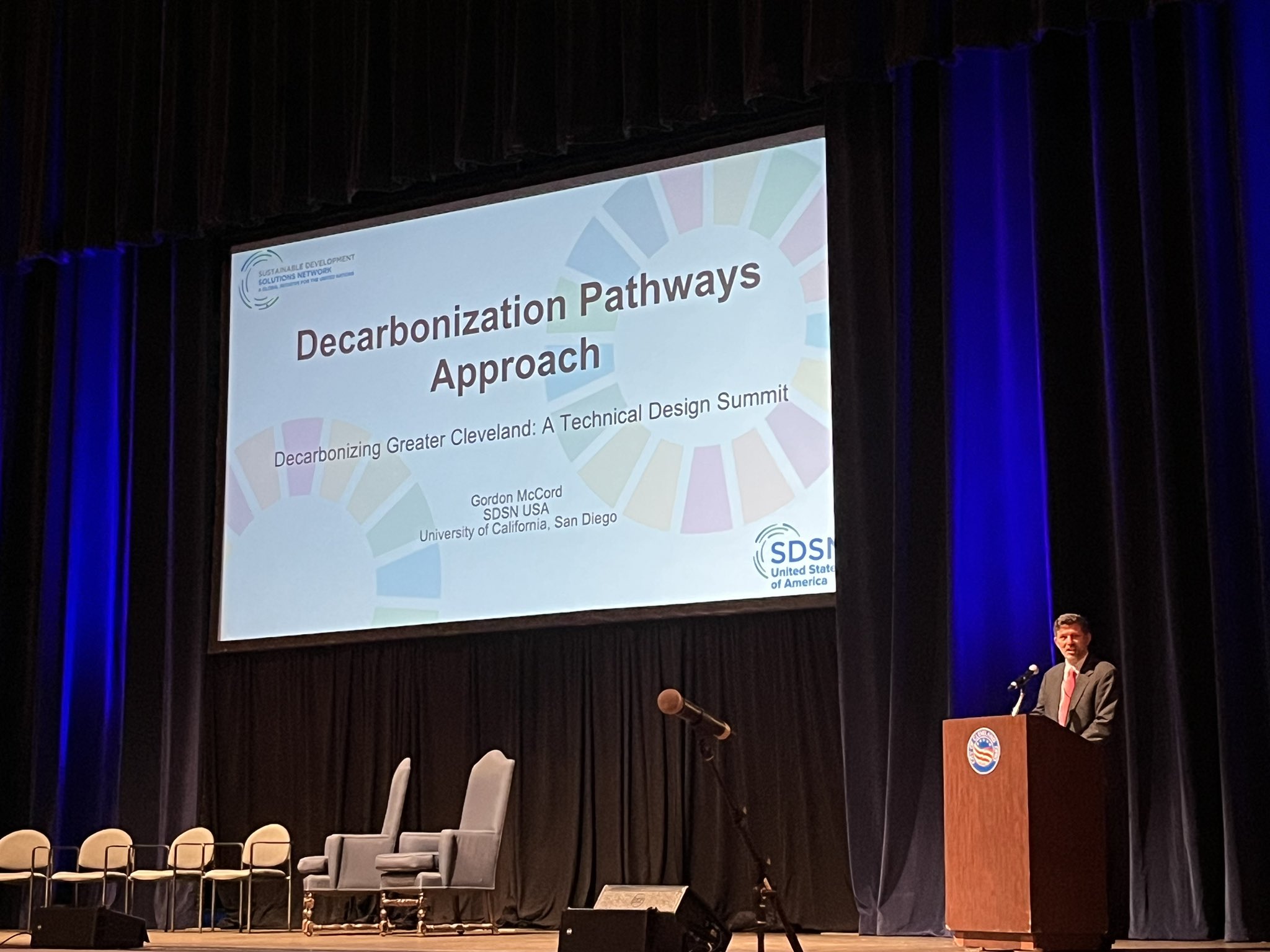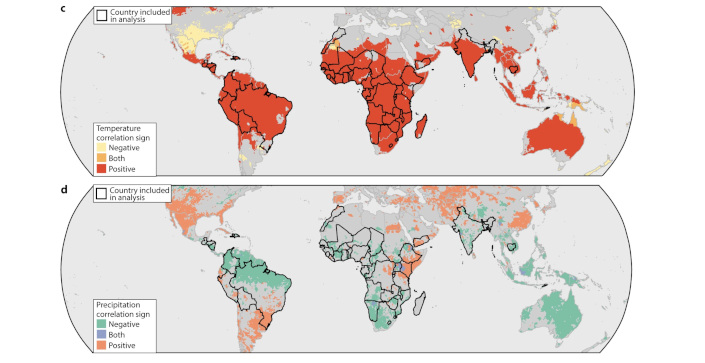Ricke and McCord discuss Wollburg et al.’s study on the intersection of poverty and climate change. Eliminating extreme poverty by 2050 might increase global greenhouse-gas emissions by less than 5%, challenging assumptions. With climate-smart growth, considering improved tech and reduced inequality, this impact reduces tenfold. The analysis highlights the . . .
SDG Policy Initiative Director
Gordon McCord
Associate Teaching Professor & Associate Dean
Gordon McCord has an extensive background in sustainable development and works at the intersection of development economics, public health and the environment. His research often employs spatial data analysis and remote sensing to explore topics such as the evolving role of geography in economic development, the burden of infectious diseases in a changing climate, the impact of agricultural technology diffusion, and the spatial patterns of violent conflict. Gordon is also Senior Advisor to the Sustainable Development Solutions Network for the United Nations. He does extensive policy work promoting the Sustainable Development Goals, including leading the SDSN-USA network of U.S. universities, and is deeply involved in the global FABLE project bringing together interdisciplinary teams to chart sustainable land use pathways for the largest countries around the world. Gordon has advised developing country governments on poverty reduction, health systems and economic growth. Prior to his doctoral work in sustainable development at Columbia University, Gordon was Special Assistant to Jeffrey Sachs at the Earth Institute and at the United Nations Millennium Project.
Engagement
Co-Chair

Senior Advisor
Latest
Gordon C. McCord and Guido Schmidt-Traub’s essay underscores the urgent need to address the unsustainable nature of global food and land use systems, responsible for significant greenhouse gas emissions, biodiversity loss, and deforestation. Emphasizing the threat posed to economic development and climate action outlined in international frameworks like the . . .
Nov 28, 2023
Gordon McCord’s NYT highlights the predictable nature of the weather phenomenon known as El Niño and its potentially disastrous consequences for various regions worldwide. They emphasize its impact on global temperatures, precipitation patterns, and the subsequent threats it poses to human health, food systems, and vulnerable populations, particularly children. . . .
Oct 29, 2023
Gordon McCord along with other researchers from UCSD coauthored a study that shows intergenerational impacts of the BGD, showing that men who were in utero at the time were more likely to have a disability that affected their employment 15 years later, and had higher rates of cancer and . . .
Jun 21, 2023
SDGPI Director Gordon McCord spoke at this first-of-its-kind event in Cleveland, outlining a pathways approach for decarbonizing. “We want to live a very comfortable and highly productive life … Using energy is part of that. We just need to figure out how to be efficient in our energy use.” . . .
Apr 17, 2023
In a study McCord co-authored last year, which explored how the El Niño Southern Oscillation can be used to predict child undernutrition and food insecurity in the developing world, he and fellow researchers emphasized that climate variability is increasingly recognized as a key determinant of health outcomes. . . .
Dec 6, 2022
Meeting ambitious climate targets will require deploying the full suite of mitigation options, including those that indirectly reduce greenhouse-gas (GHG) emissions. Healthy diets have sustainability co-benefits by directly reducing livestock emissions as well as indirectly reducing land use emissions. Increased crop productivity could indirectly avoid emissions by reducing cropland . . .



